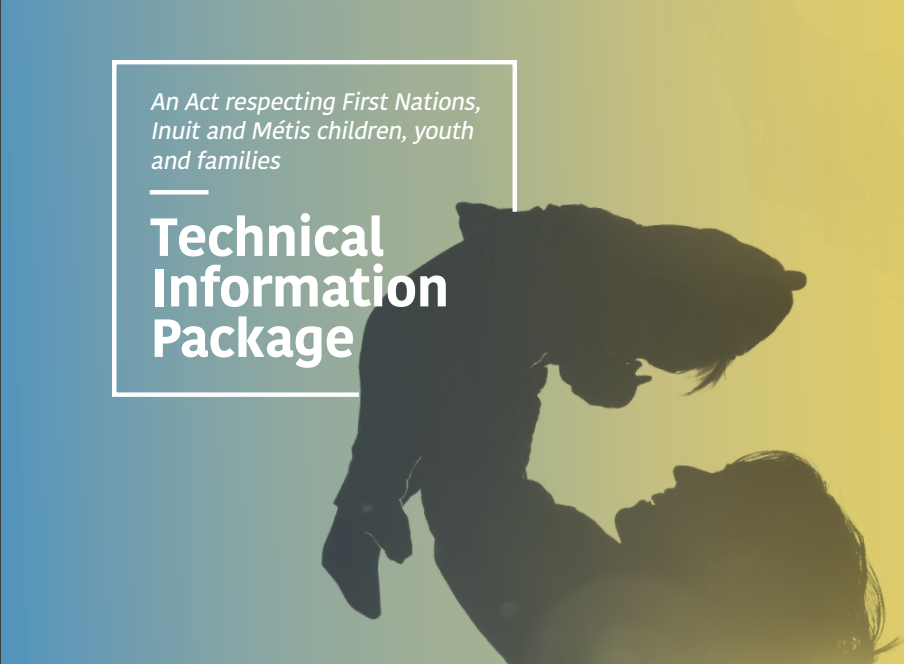Bill C-92
An Act respecting First Nations, Inuit and Métis Children, Youth and Families
Bill C-92 was officially passed in June 2019 and came into force in January 2020. It is intended to address the overrepresentation of Indigenous children and youth within the child welfare system and to maintain their identity and family connections. The Act recognizes jurisdiction over child and family services as an integral element of Indigenous self-governance and contributes to the implementation of UNDRIP in Canada. Once an agreement is reached between Indigenous Governing Bodies, their respective provincial governments and the federal government, the Indigenous child and family services laws will come into force.
The province of Quebec has argued that the Act is outside the jurisdiction of the federal government because the new indigenous laws may interfere with how the province delivers child and family services. The argument put forward by Quebec is that recognition of self-government for Indigenous peoples is an unlawful attempt to alter and violate the Constitution. The Quebec Court of Appeal (QCA) determined that except for sections 21 and 22(3) which give Indigenous laws the force of federal laws, the Act is constitutional. The Court found that the national principals and standards do not interfere with the provincial power over public service and are incidental to provincial child welfare laws, but not unconstitutional.
Quebec has subsequently appealed all parts of the QCA decision to the Supreme Court of Canada. Canada and several Indigenous organizations have expressed they will be appealing QCA’s decision as well. As the case proceeds to the Supreme Court of Canada, the Métis National Council and Governing Members have been granted full intervenor status. The case will be heard by the Supreme Court of Canada on December 7th and 8th 2022 and the proceedings will be available for live stream beginning at 9:30AM both dates on the Supreme Court of Canada website.
On February 9, 2024, the Supreme Court of Canada (the “Court”) released its reference decision on An Act respecting First Nations, Inuit and Métis children, youth and families (the “Act”).
The Court held that the Act is constitutionally valid in its entirety, confirming the Act is one unified whole that does not alter Canada’s constitutional structure. As the Act aims to protect the well-being of First Nations, Inuit and Métis children through culturally appropriate child and family services, the Act falls within Parliament’s exclusive legislative authority for First Nations, Inuit and Métis under section 91 (24) of the Constitution Act, 1867.
The Court found that the Act codified Parliament’s affirmation that section 35 of the Constitution Act, 1982, includes a right of self-government in relation to child, youth and family services for First Nations, Inuit and Métis. These affirmations set out Parliament’s understanding of specific section 35 rights, and while they are not final determinations on the scope of section 35, do have legal effect and bind the Crown’s future conduct (i.e., it can no longer deny the existence of this right).
The Court strongly endorsed the Act as a form of “legislative reconciliation.” This phrase refers to how the Act weaves the affirmation of inherent rights, mechanisms for the exercise of First Nations, Inuit and Métis legislative authority, federal minimum national standards, and international minimum standards together. The Act does not purport to be the source of these rights but proceeds on the premise that these rights exist independently.
The Court provided a strong endorsement of an approach grounded in rights-recognition and the interconnection of Indigenous, Canadian, and international legal orders to support the ongoing transformation of Canadian laws, policies, and processes to better recognize, protect and advance First Nations, Inuit and Métis rights.
Further, the Court recognized the Act as a concrete legislative measure to implement the United Nations Declaration on the Rights of Indigenous Peoples (“UNDRIP”). The Court provided its most substantive discussion on UNDRIP to date, which bodes well for future judicial consideration of UNDRIP to inform the interpretation of section 35 and the implementation of the United Nations Declaration on the Rights of Indigenous Peoples Act. The Court recognized that UNDRIP has been incorporated into Canada’s domestic law and, through the measures to implement the rights affirmed in UNDRIP relating to children, youth and families, the Act is a step toward meeting Canada’s commitments to implement UNDRIP.


